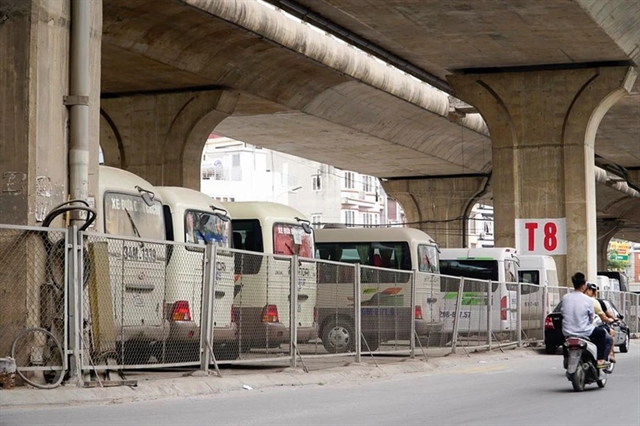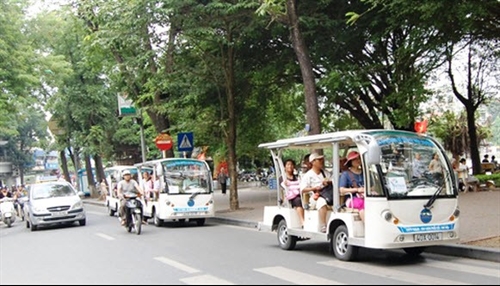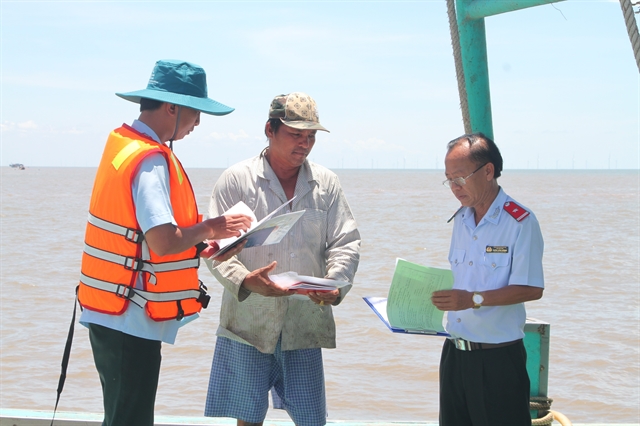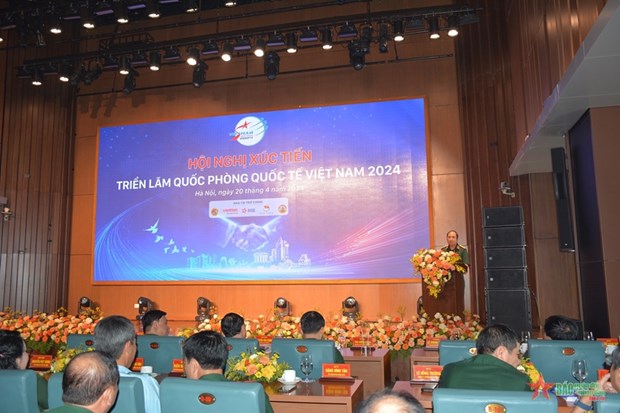 Society
Society

Most of the electric four-wheelers used for tourist purposes nationwide have yet to be registered, the Việt Nam Register said.
 |
| Tourists visit Hà Nội by electric cars. – Photo petrotimes.vn |
HÀ NỘI (VNS)— Most of the electric four-wheelers used for tourist purposes nationwide have yet to be registered, the Việt Nam Register said.
Businesses have imported more than 1,300 vehicles for the tourist business, but only 176 vehicles, equivalent to 13.5 per cent, have been registered, Deputy Head of the Việt Nam Register Nguyễn Hữu Trí told the government online newspaper.
Electric cars are being used to transport tourists in 10 localities on a trial basis, following the approval of the Prime Minister. These localities are Hà Nội, Đà Nẵng, Thừa Thiên-Huế and Quảng Bình, as well as Thanh Hóa, Nghệ An, Hải Phòng and Khánh Hòa, besides Bà Rịa-Vũng Tàu and Lào Cai.
Head of the transport ministry’s Department of Transport Trần Bảo Ngọc said the vehicles were completely reliable and safe for transporting tourists, with no accidents being reported so far.
The electric cars were considered to be environment-friendly, which helped to promote green tourism, he said.
Electric cars should be registered and given licence plates for monitoring purposes. However, the vehicles are yet to be regulated under the Road Traffic Law, leading to difficulties for state agencies in monitoring them and for businesses in operating them.
A representative of the Hải Phòng Electric and Telecommunications Company told the newspaper that the company’s 50 electric cars, which are being used to transport tourists at various tourist sites in Hải Phòng City, had not been registered due to lack of appropriate documents and guidance from authorised agencies.
However, Hải Phòng Police have requested that all electric cars must be registered before April, he said.
A representative of the transport department of the central Thanh Hóa Province said businesses operating electric cars wanted to register their vehicles, but lacked essential documents as required by the government Circular 86, issued in 2014, on the automobile transport business and its conditions.
The Việt Nam Register should give concrete guidance to help businesses register their vehicles, he said.
Thanh Hóa Police had temporarily provided plates to electric cars for better management, because the vehicles operate in limited areas.
Võ Văn Hùng, vice-chairman of Cửa Lò Commune in the central Nghệ An Province, said the number of electric cars in the commune have increased to nearly 500 to provide services to the increasing number of tourists visiting the locality. However, these vehicles have not been registered, making it difficult to manage them.
The transport ministry should issue regulations regarding registration of electric cars, he said. The problem was related to documents and procedures and so it needed specific mechanisms to legalise electric cars for better management, he said.
Deputy Transport Minister Lê Đình Thọ said many localities failed to manage these kinds of vehicles. Electric cars are allowed to operate in limited areas to help tourists, but in many localities, they are operated like other vehicles.
The ministry will request the Prime Minister to stop the pilot use of electric cars for tourist purposes and to allow them to be operated like other vehicles for better management.
It was essential to review and amend related regulations to make the operation of electric cars as a condition-based transport business, he said. — VNS









